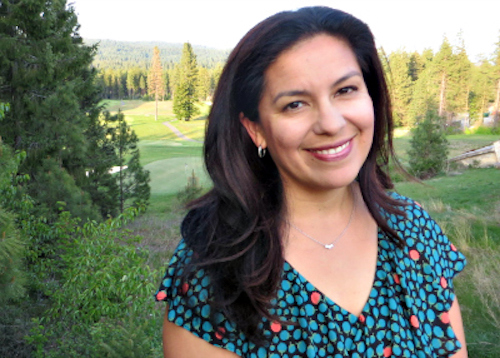Campus News
Undergraduates in UC Santa Cruz’s Human Rights Investigations Lab fight for migrant rights
UC Santa Cruz’s Human Rights Investigations Lab, housed in the Dolores Huerta Research Center for the Americas, has been assisting those seeking asylum in the United States and fighting back against the controversial Title 42 immigration policy.

A recent federal ruling is showing a sharp turn in the country’s immigration policies — and some of that work stems back to UCSC’s research efforts.
On Nov. 16, federal judge Emmet Sullivan blocked the controversial Title 42 immigration policy for five weeks, putting a pause on the Trump policy that allowed U.S. authorities to expel more than 1 million migrants who have crossed the U.S.-Mexico border.
The policy — largely criticized by both public health experts and immigration advocates — led to many issues for immigrants seeking asylum from their home countries. Now, migrants could be able to enter the U.S. and make their case for asylum in immigration court; the policy will be on hold until midnight on Dec. 21.
While the policy has been in effect since the start of the COVID-19 pandemic, launched on March 20, 2020, immigration advocates and groups have been at the frontlines in assisting those seeking asylum in the United States and fighting back against Title 42. One such group is UC Santa Cruz’s own Human Rights Investigations Lab, housed in the Dolores Huerta Research Center for the Americas.
Launched in fall 2019, the Human Rights Investigations Lab aims to provide virtual support to non-governmental agencies, news outlets and advocates in open source investigations. Founder and director Sylvanna Falcón — who is also an associate professor in UC Santa Cruz’s Latin American & Latino/a Studies department — said the lab’s work focuses on addressing and confronting human rights violations, with ongoing monitoring of humanitarian, environmental and socio-political crises across the Americas.
Since Title 42’s implementation, Falcón said that policy has led to a new level of crisis for those seeking refugee status in the U.S., and its overturn could in a way “potentially alleviate some of the crises.” The team has worked with two other organizations, the Human Rights First (Refugee Protection Program) in the U.S. and El Instituto para las Mujeres en la Migración (IMUMI) in Mexico.
“Partly, as sort of a broader and informed public, we had an understanding that Title 42 was impacting migrants in profound ways, but until we did the research, we didn’t quite know the breadth of the increase in despair,” she said.
From the group’s work thus far, HRI Lab’s findings show Title 42 is in violation of the principle of non-refoulement — namely, if an individual asks for asylum at your border, they cannot be sent back to their country where they may face significant harm, violence or death.
Lorena Hernandez Rivera, a fifth-year undergraduate in the Latin American & Latino/a Studies department, served as the undergraduate team leader for HRI’s efforts, leading the group of nine students in tandem with a UC Berkeley team from the Human Rights Center. She said that, as a Mexican-American student herself, it was both touching and painful to research.
“They’ve made so much effort attempting to come to the U.S., and they face not only U.S. border policy but Mexico border policy, violence from the cartels, migrants attacking other migrants,” she said. “It was a lot to take in.”
Mireya Curiel, a fifth-year undergraduate in the Latin American & Latino/a Studies department, further said their work went beyond just the border, and impacted the entire country of Mexico.
“When we looked into the research going throughout Mexico and its southern border, it was pretty heavy,” she said. “Social media was a big tool in finding a lot of these documented incidents.”
The group used a few specific social media tools as part of their open source methodology to garner more evidence to show the human rights violations associated with Title 42, including Tweetdeck for Twitter, and Crowdtangle for Facebook and Instagram. As Falcón said, the research revealed that there was not just a one-way passage through Mexico; there is, instead, a global migration happening through Mexico toward the Global North, which the HRI lab recognizes as both “a global issue, and a human rights issue.”
Undergraduate Nik Altenberg said she felt a bit discouraged at a certain point in conducting this research, because of its gravity: “It’s very intense work, and emotionally traumatic.”
Still, with the recent news development, Altenberg is cautiously optimistic of what’s to come, and believes the HRI Lab team should “all be proud of our team on this win.”
Looking forward, the group isn’t sure of what’s to come with Title 42, but all agree that this work is more than just learning about a faraway crisis via textbooks.
“It’s one thing to read about a crisis in a traditional college course — it’s another thing to actually collect information about the severity of a crisis,” Falcón said. “It’s an incredible way — a teaching moment — to show that the work they’re doing has real life impact. They have a small part in contributing to a significant outcome for migrants.”